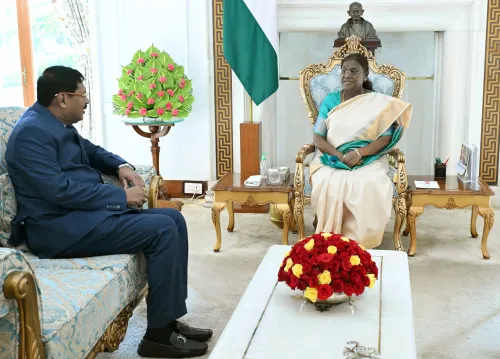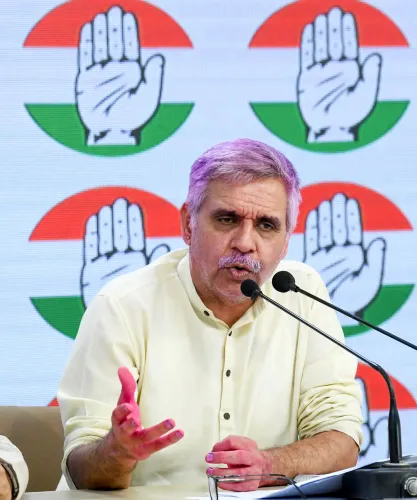Why Has India Closed Its Airspace to Pakistan-operated Flights Until May 23?

Synopsis
Key Takeaways
- India has closed its airspace to Pakistan until May 23.
- The closure is in response to escalating tensions and a recent terrorist attack.
- India's Cabinet Committee on Security is actively involved in the decision-making process.
- Multiple measures have been taken against Pakistan as a part of national security strategy.
- Continued diplomatic dialogue is essential for regional stability.
New Delhi, April 30 (NationPress) In a major move, India has declared the closure of its airspace to all flights operated by Pakistan until May 23 (estimated). This decision follows Pakistan's recent action to restrict its airspace to Indian carriers. India has issued a NOTAM (Notice to Airmen) prohibiting Pakistani aircraft from entering its airspace until the stated date.
This decision comes in light of rising tensions between India and Pakistan following a tragic terrorist attack in Jammu and Kashmir's Pahalgam, which resulted in the deaths of 26 individuals, primarily tourists.
The NOTAM stipulates that this prohibition will be in force from April 30 to May 23, 2025, barring any Pakistani aircraft from accessing Indian airspace.
The announcement by India arrives shortly after Pakistan's closure of its airspace to Indian-operated flights, prompting a reciprocal response from India.
Earlier today, the Cabinet Committee on Security (CCS), led by Prime Minister Narendra Modi, convened to assess the security situation and determine the next steps in response to the April 22 attack in Pahalgam.
This was the second meeting of the top national security body within a few days, comprising key ministers including Defence Minister Rajnath Singh, Home Minister Amit Shah, External Affairs Minister Subrahmanyam Jaishankar, and Finance Minister Nirmala Sitharaman.
In the previous CCS meeting, India undertook multiple actions against Pakistan, including the suspension of the Indus Waters Treaty, closing the Attari border, canceling visas for Pakistani nationals, blocking several YouTube channels and X handles, and downgrading diplomatic relations by reducing the staff in embassies, compelling them to return to their home country.









